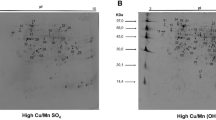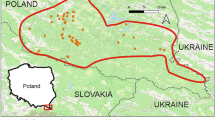Abstract
THE discovery that molybdenum is a component of the enzyme xanthine oxidase1 has directed interest to the presence of this element in animal tissue, particularly liver. I have found that adult horse liver tissue contains highly variable levels of molybdenum.
This is a preview of subscription content, access via your institution
Access options
Subscribe to this journal
Receive 51 print issues and online access
$199.00 per year
only $3.90 per issue
Buy this article
- Purchase on Springer Link
- Instant access to full article PDF
Prices may be subject to local taxes which are calculated during checkout
Similar content being viewed by others
References
Richert, D. A., and Westerfeld, W. W., J. Biol. Chem., 203, 915 (1953).
Dick, A. T., and Bingley, J. B., Aust. J. Exp. Biol. Med. sci., 29, 461 (1951).
Underwood, E. J., “Trace Elements in Human and Animal Nutrition”, p. 125 (Academic Press, New York, 1956).
Author information
Authors and Affiliations
Rights and permissions
About this article
Cite this article
MOORE, P. Molybdenum Content of Equine Liver Tissue. Nature 182, 1175–1176 (1958). https://doi.org/10.1038/1821175b0
Issue Date:
DOI: https://doi.org/10.1038/1821175b0
Comments
By submitting a comment you agree to abide by our Terms and Community Guidelines. If you find something abusive or that does not comply with our terms or guidelines please flag it as inappropriate.



